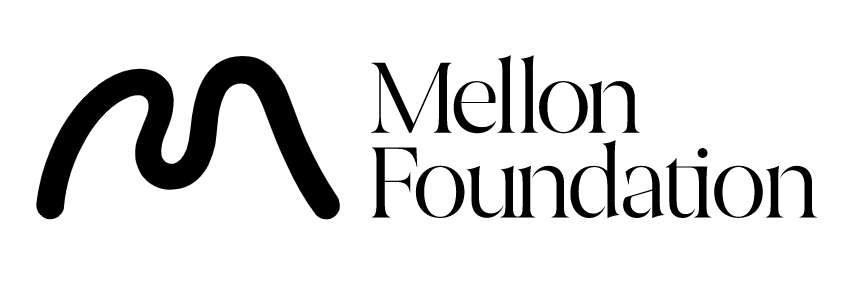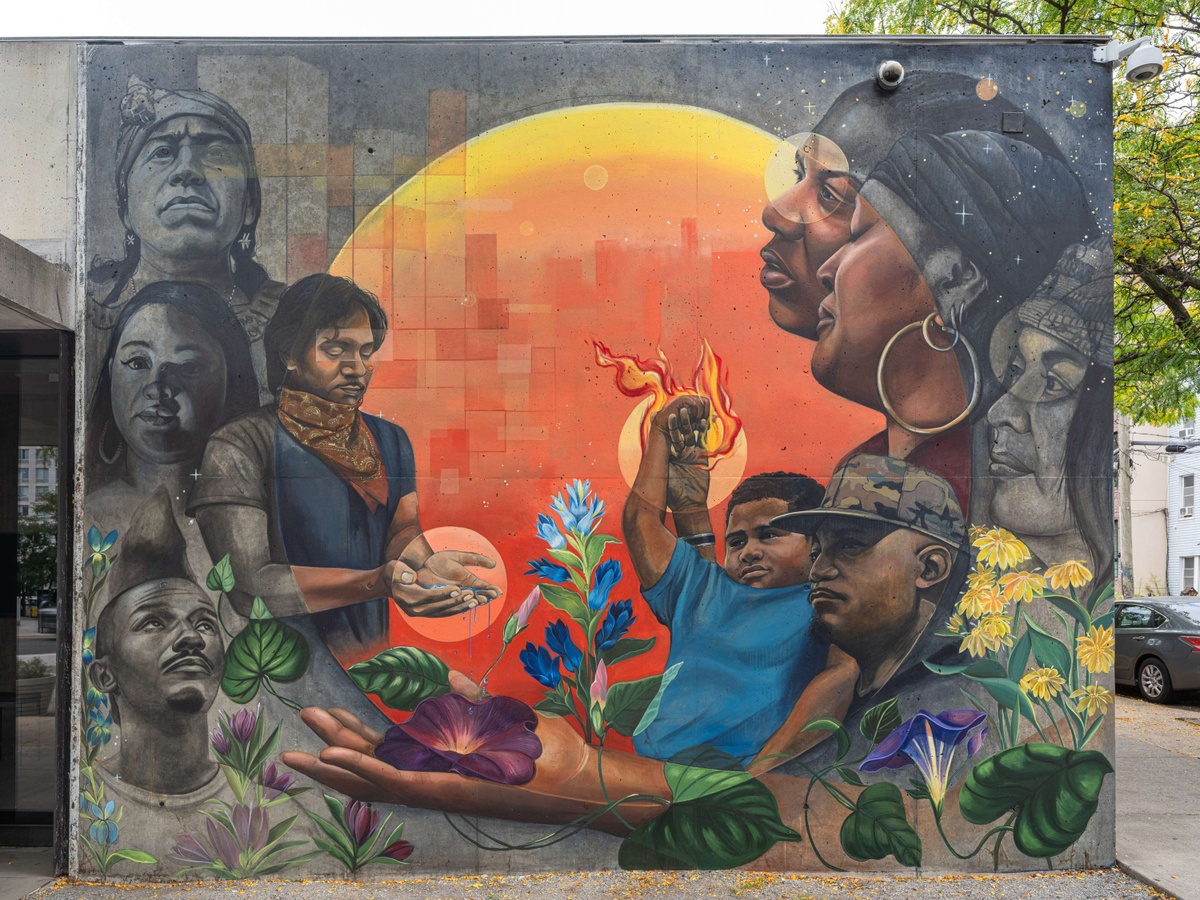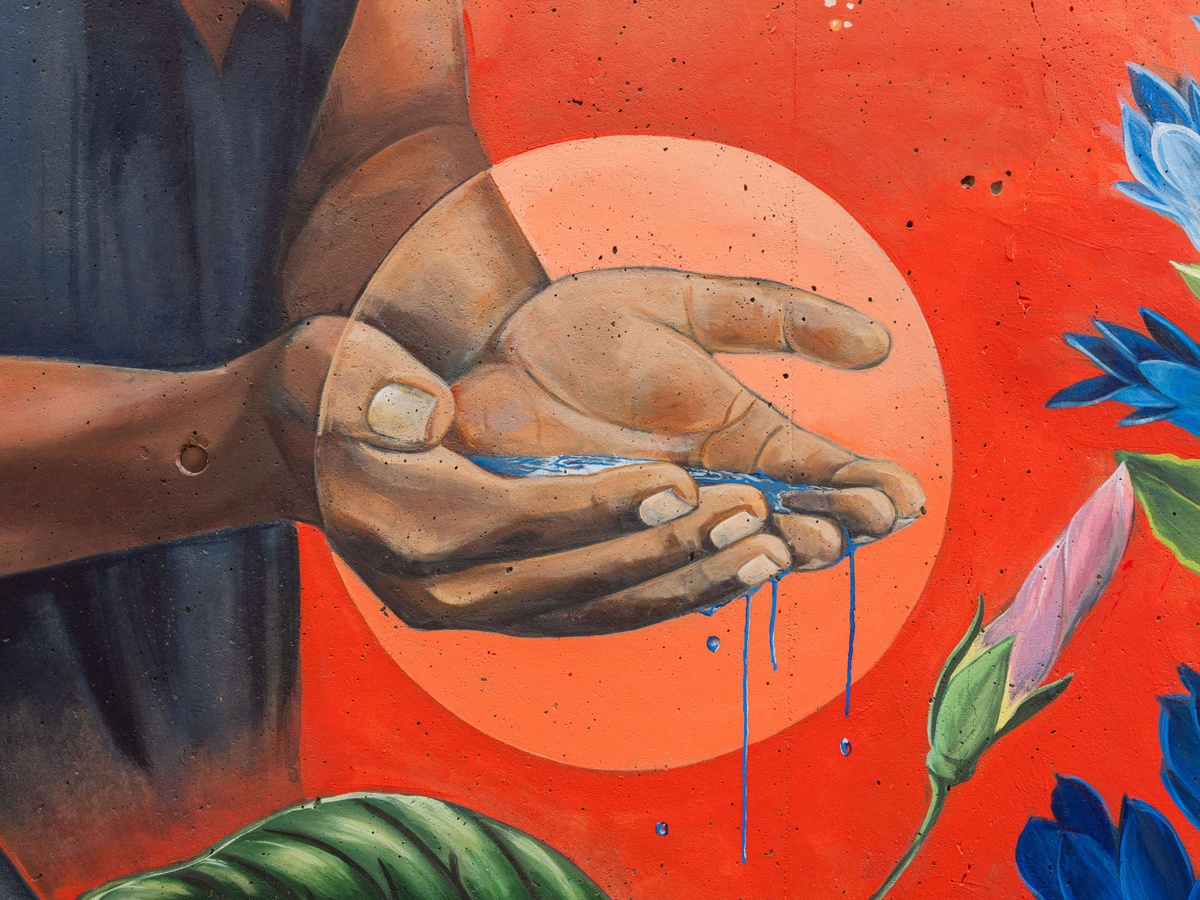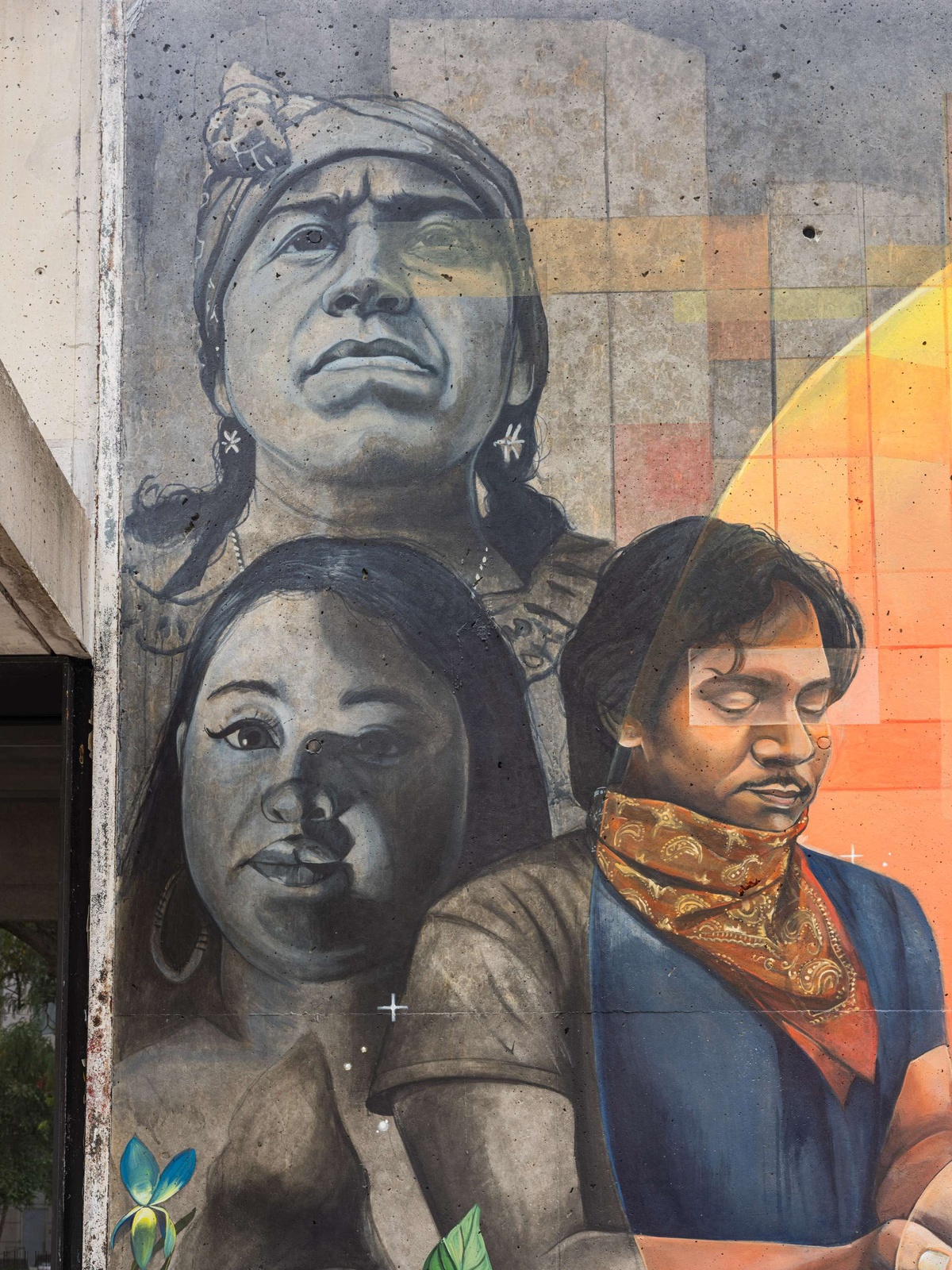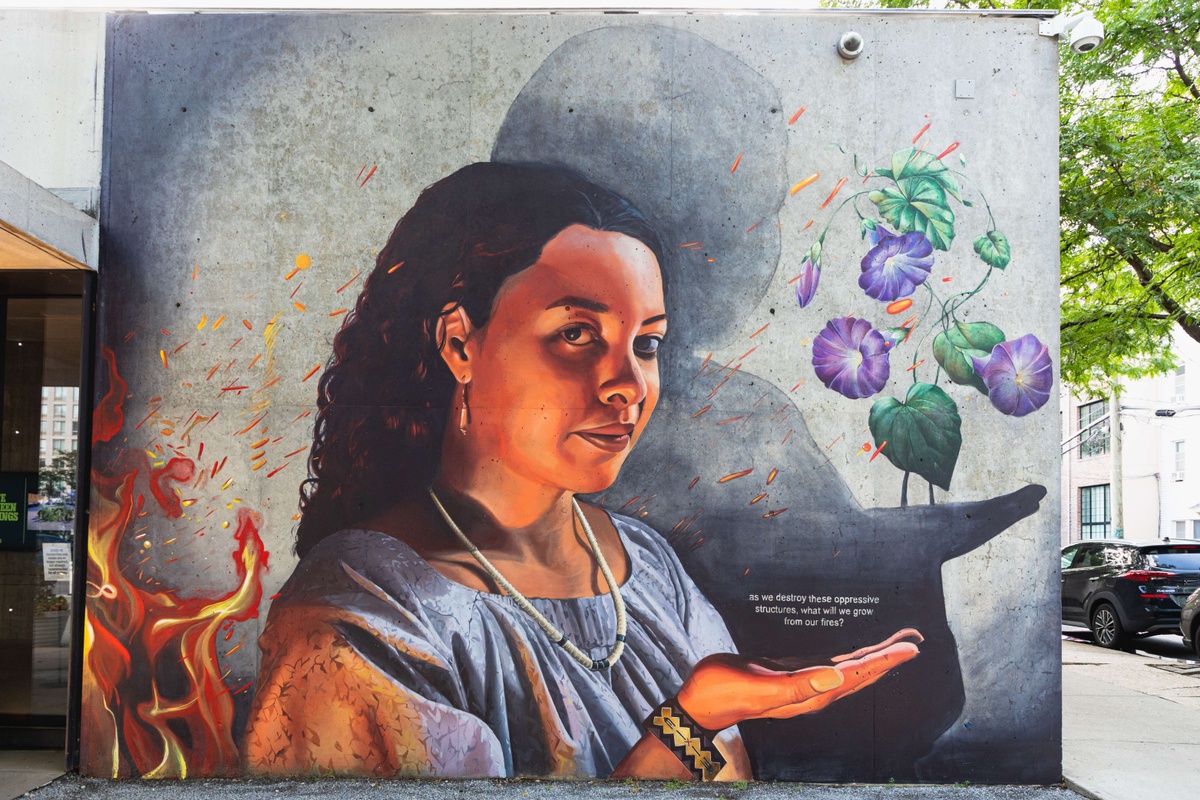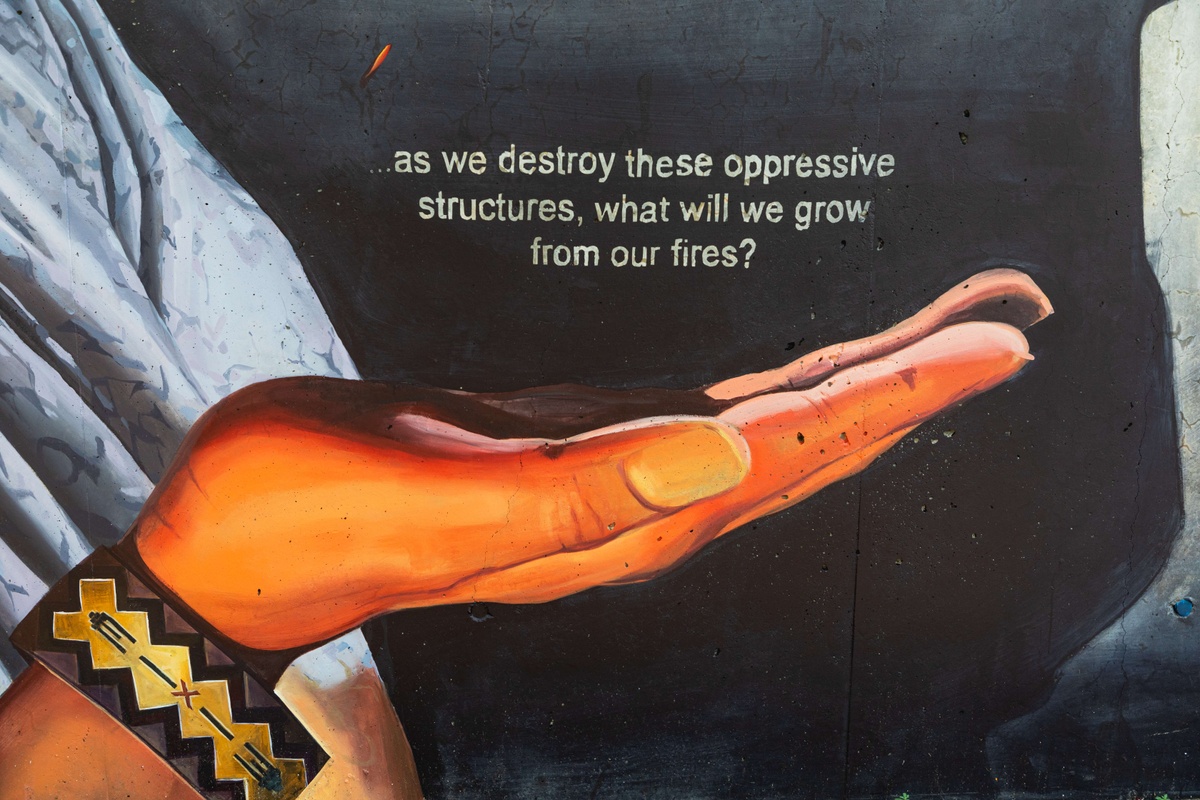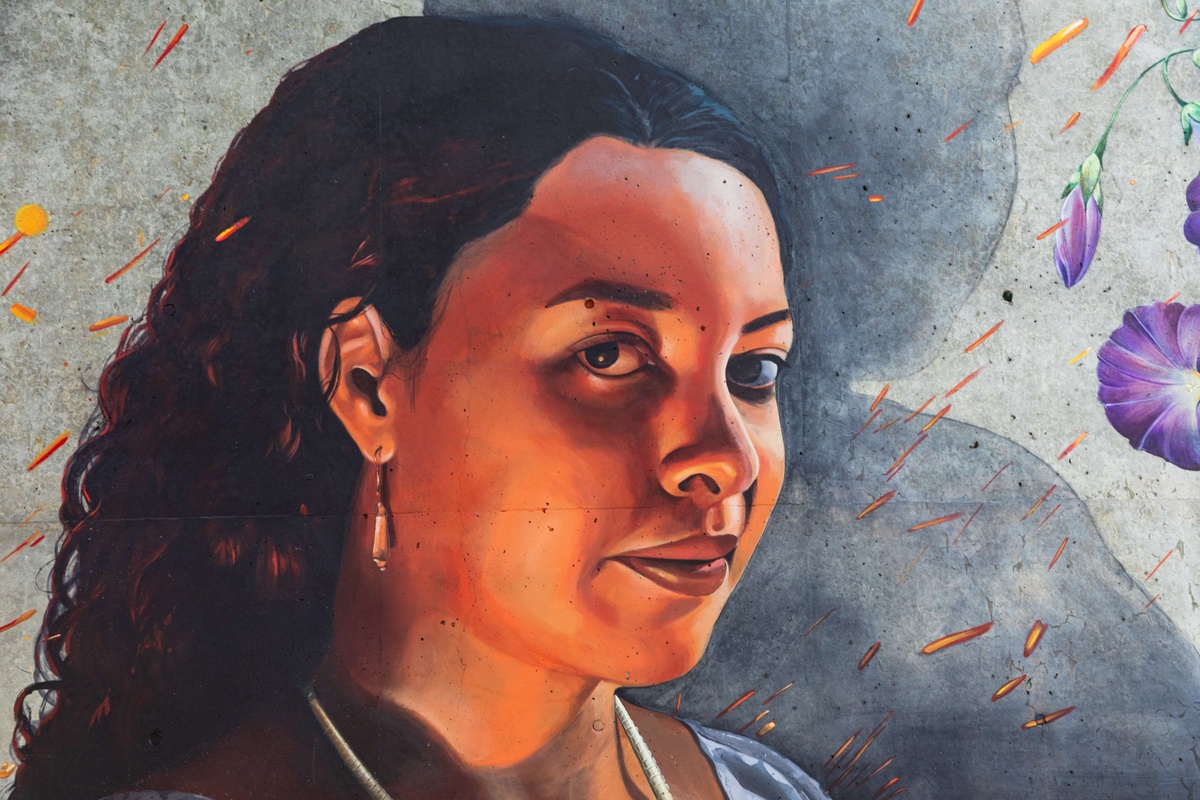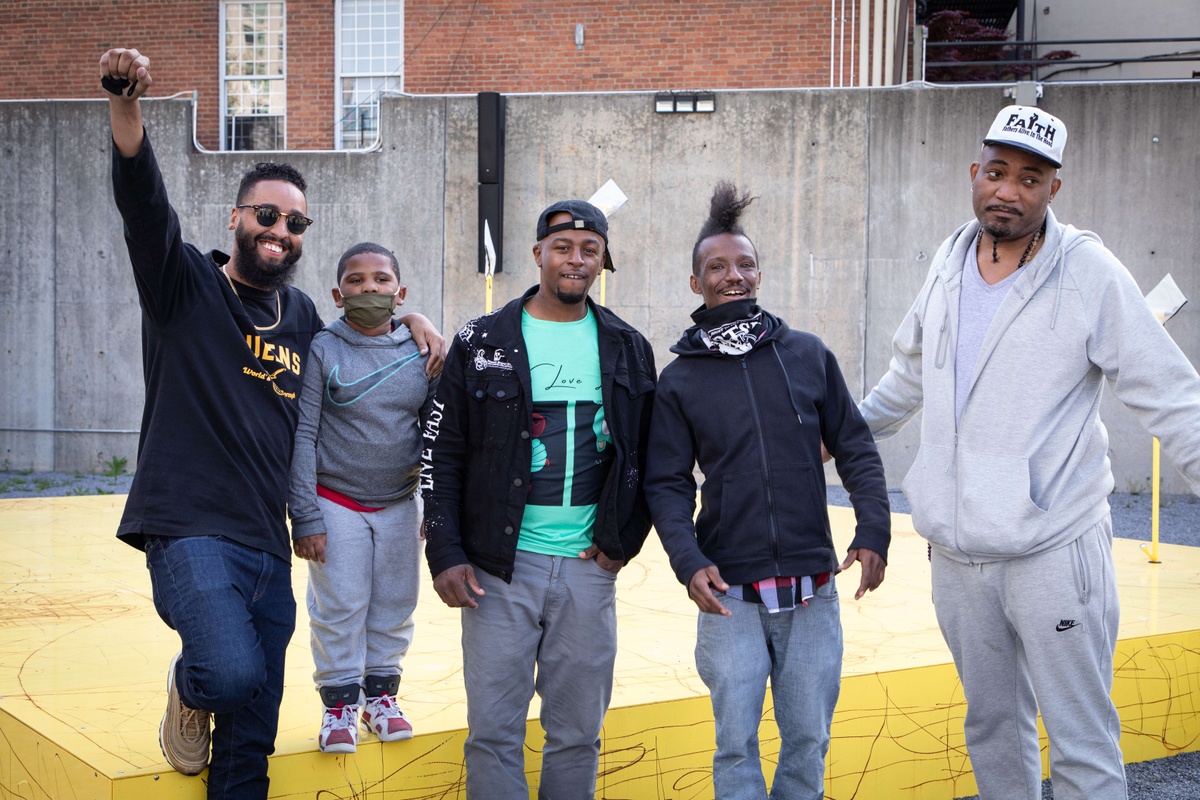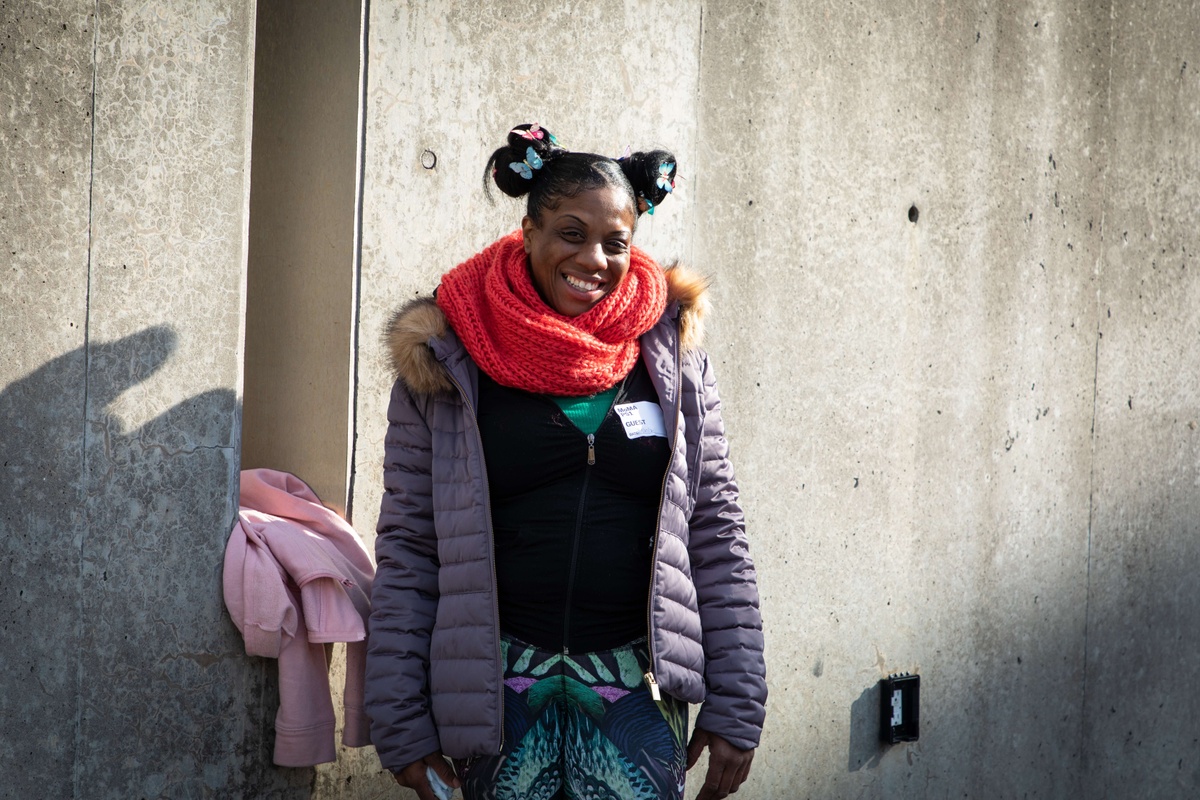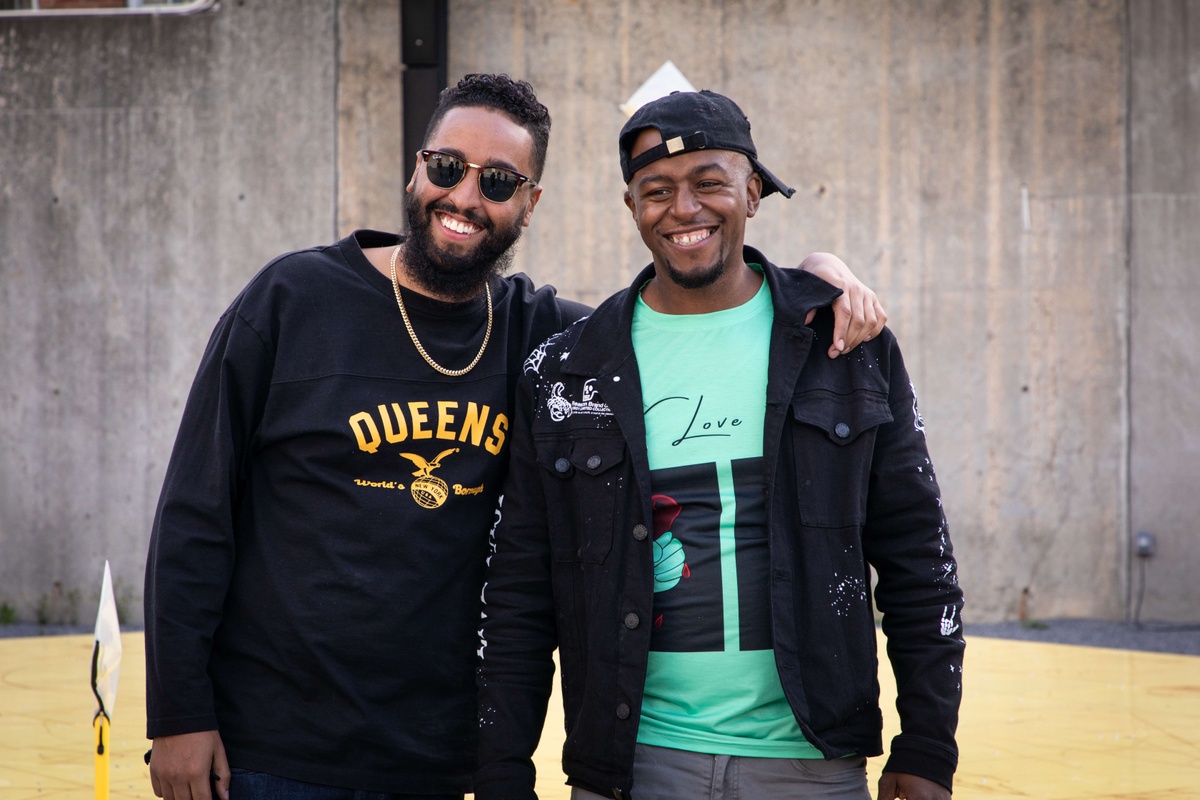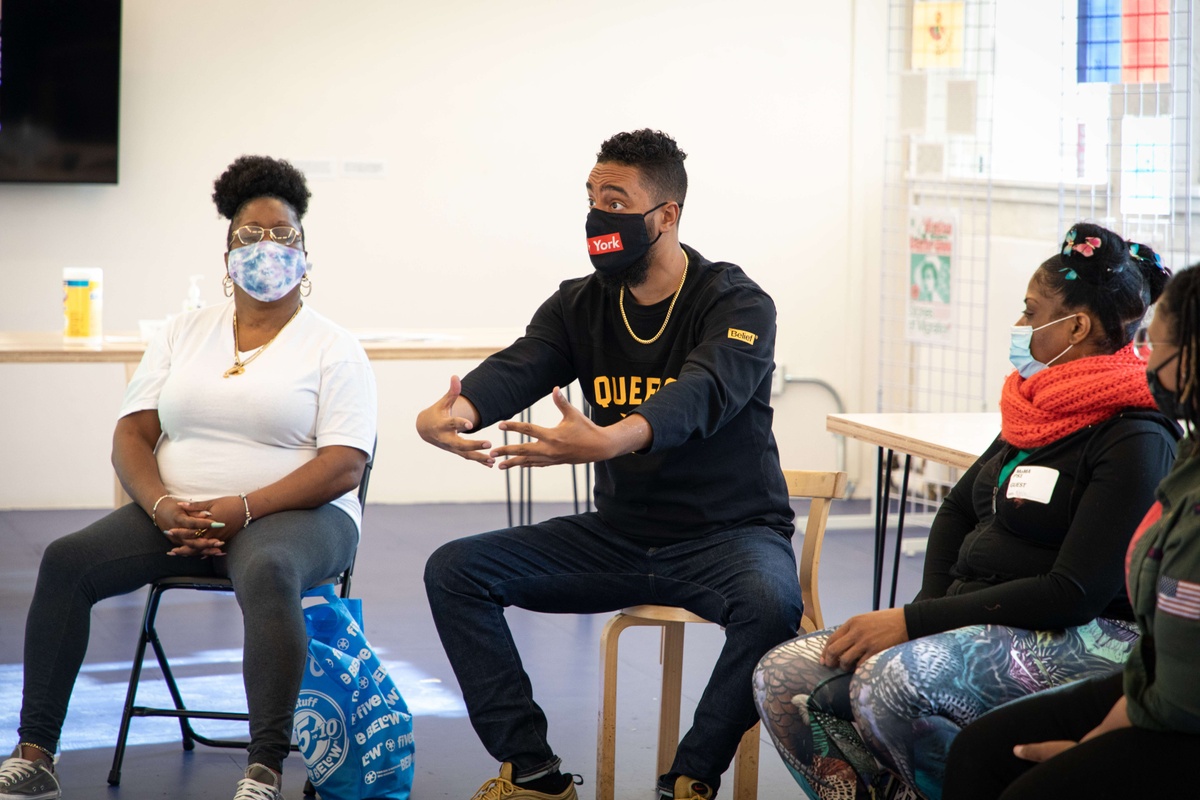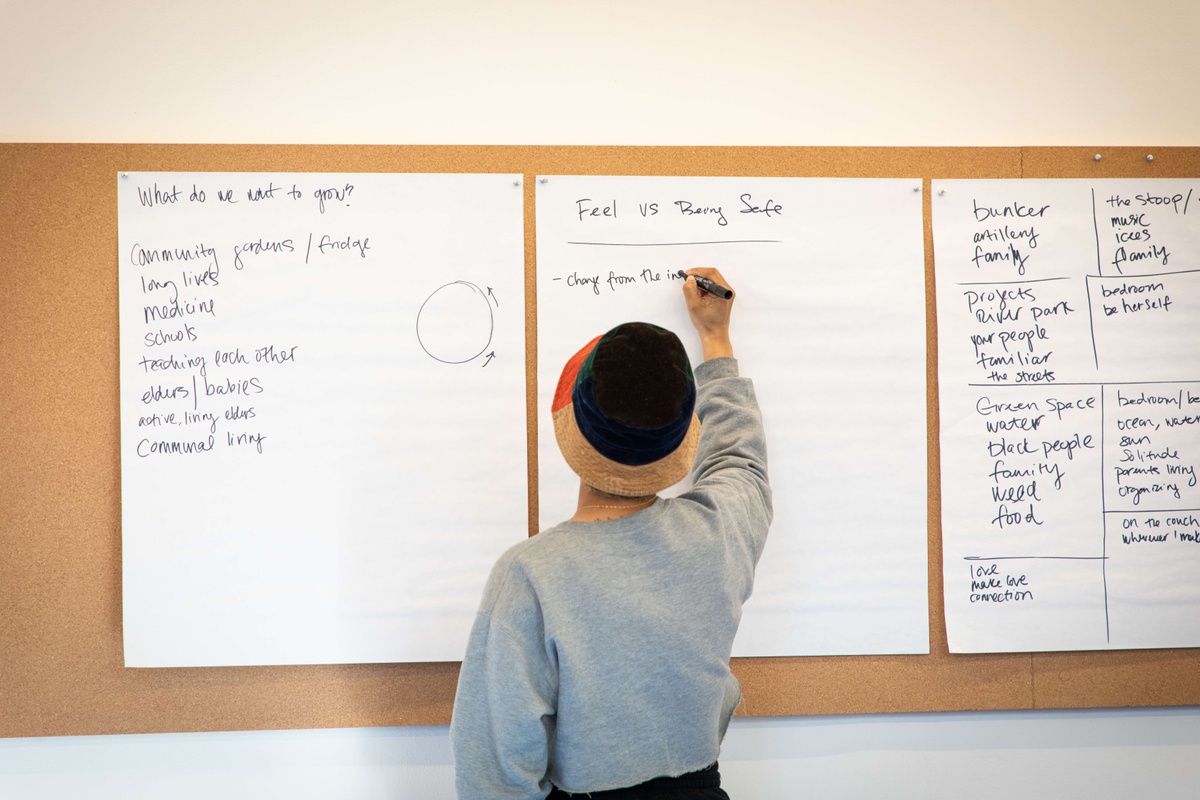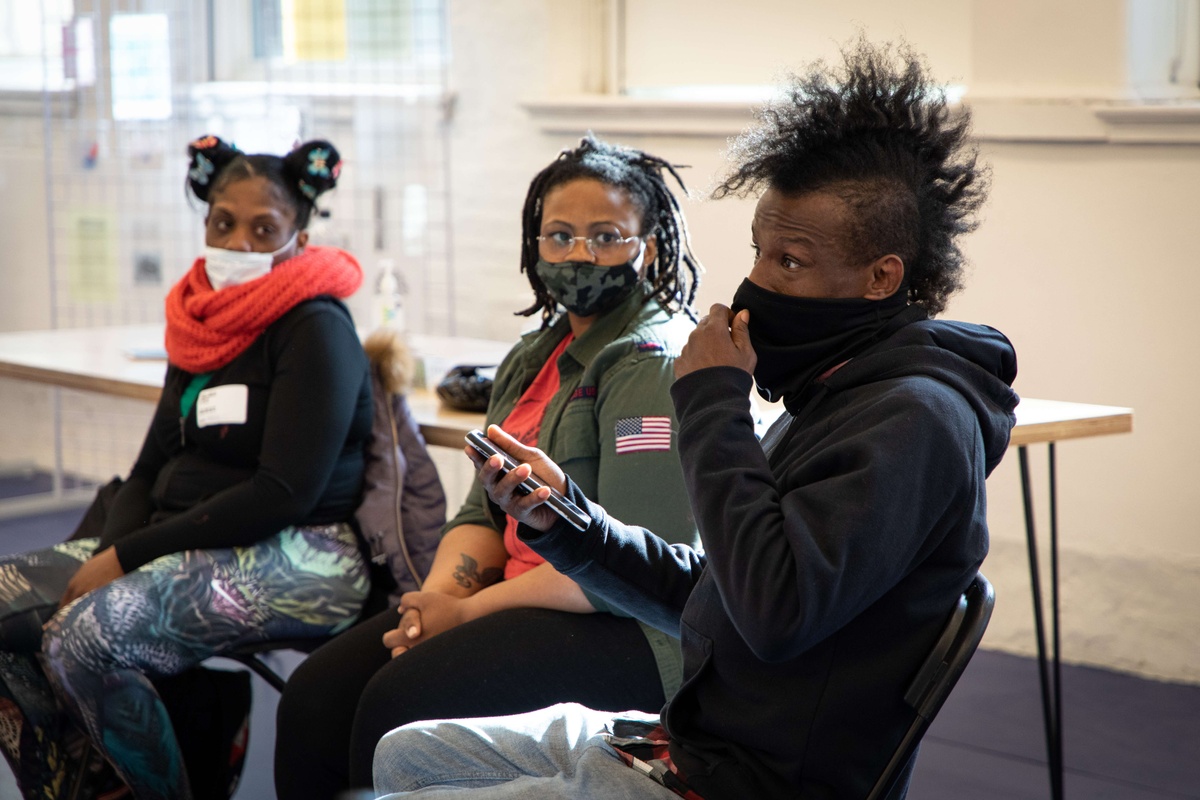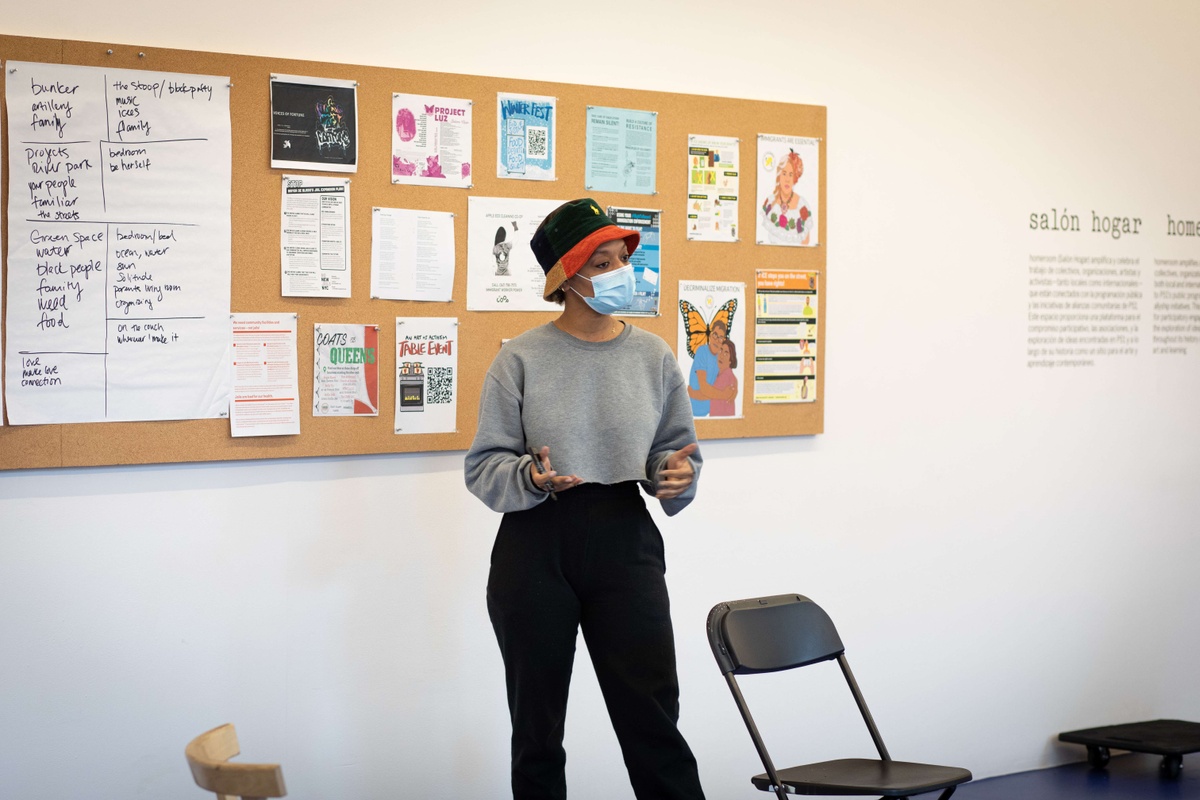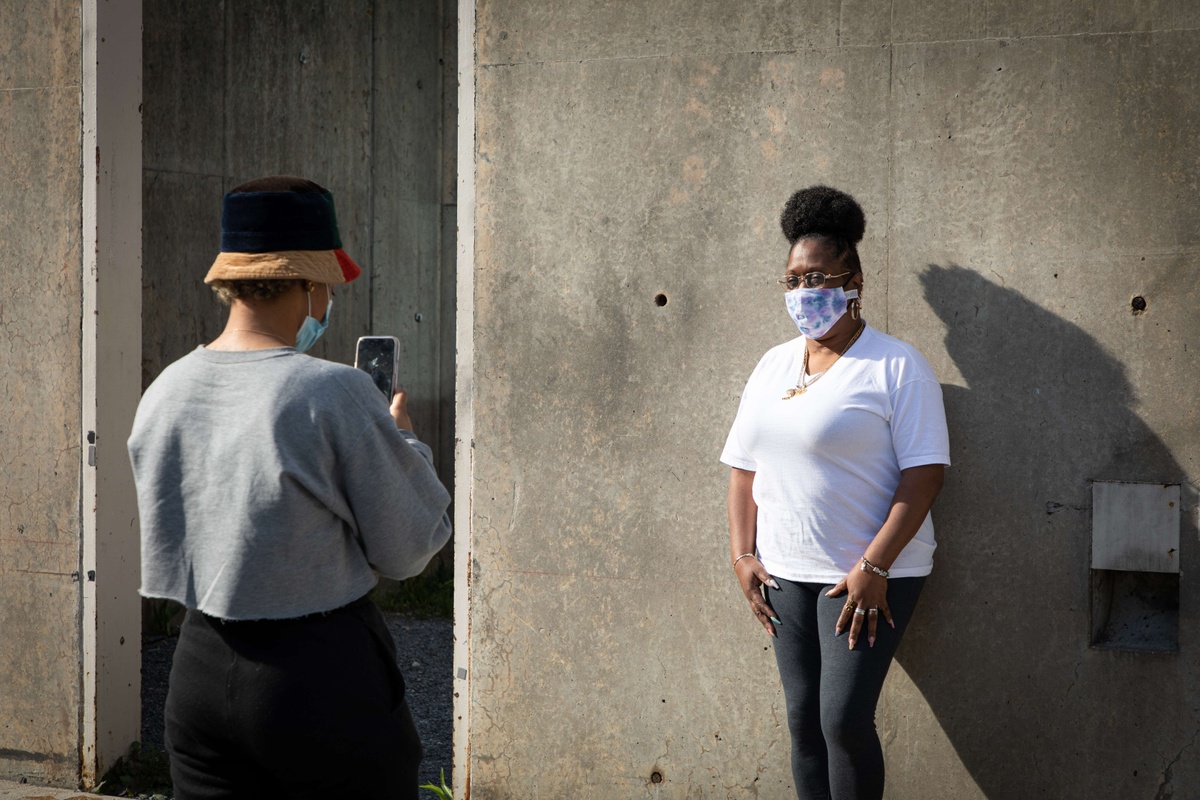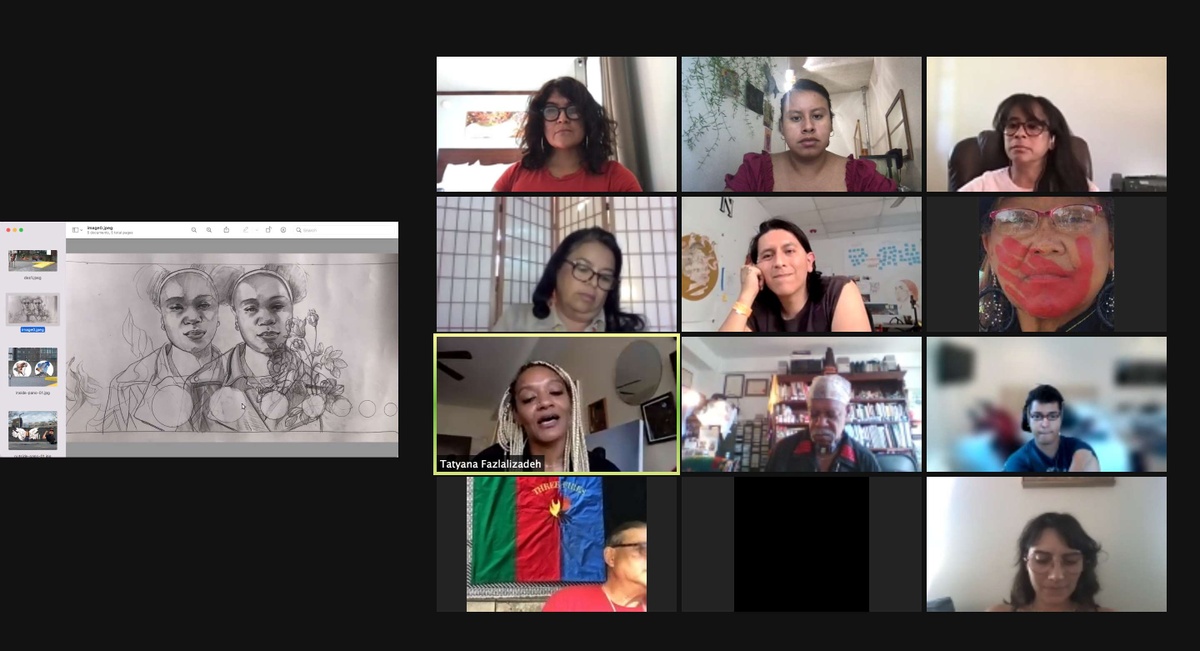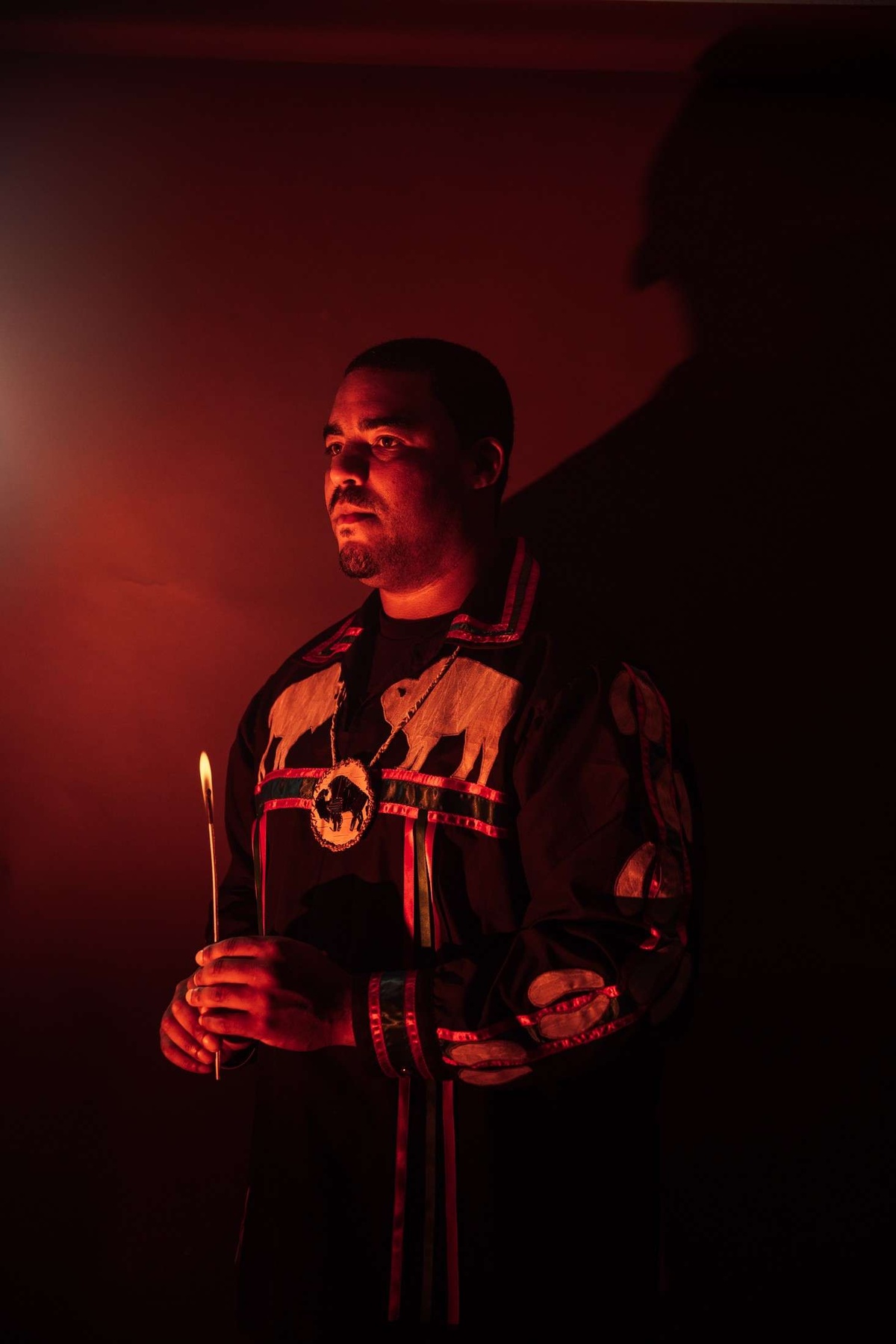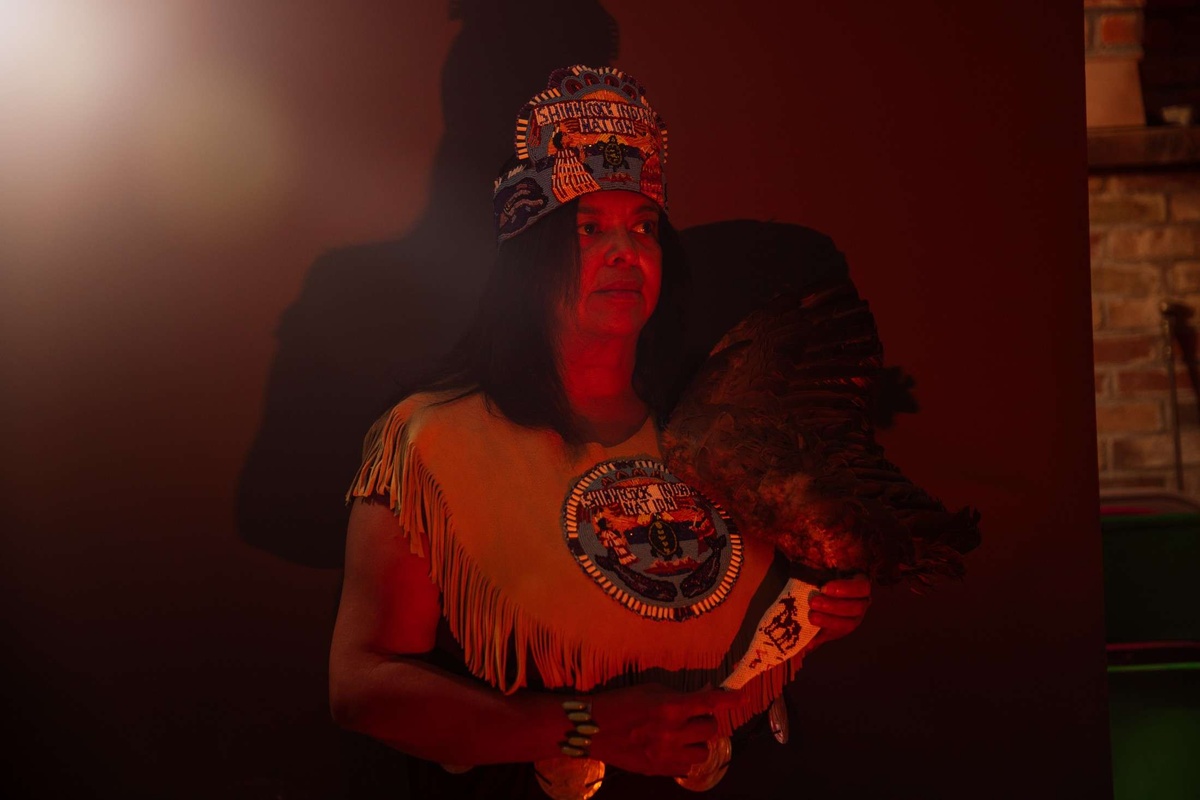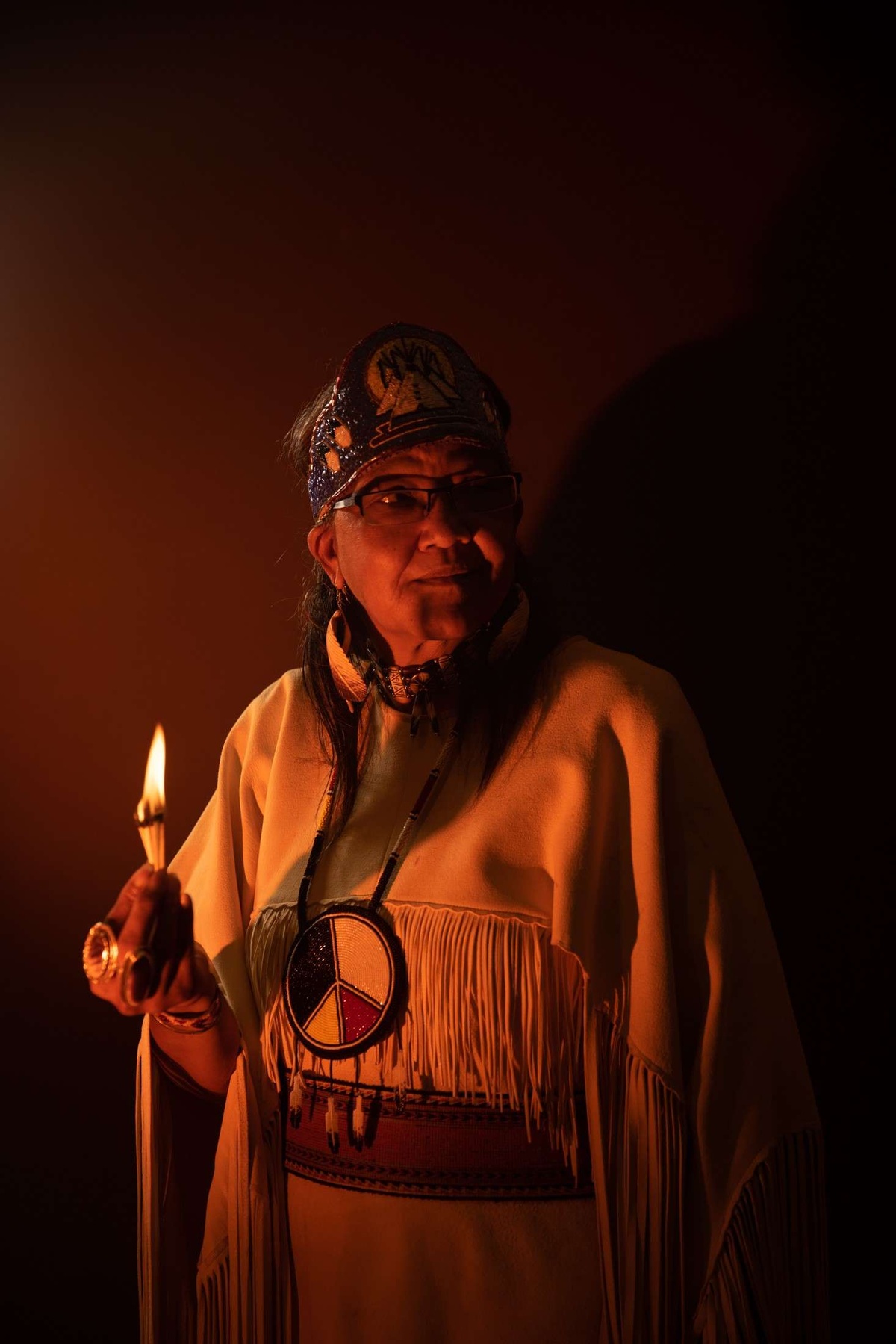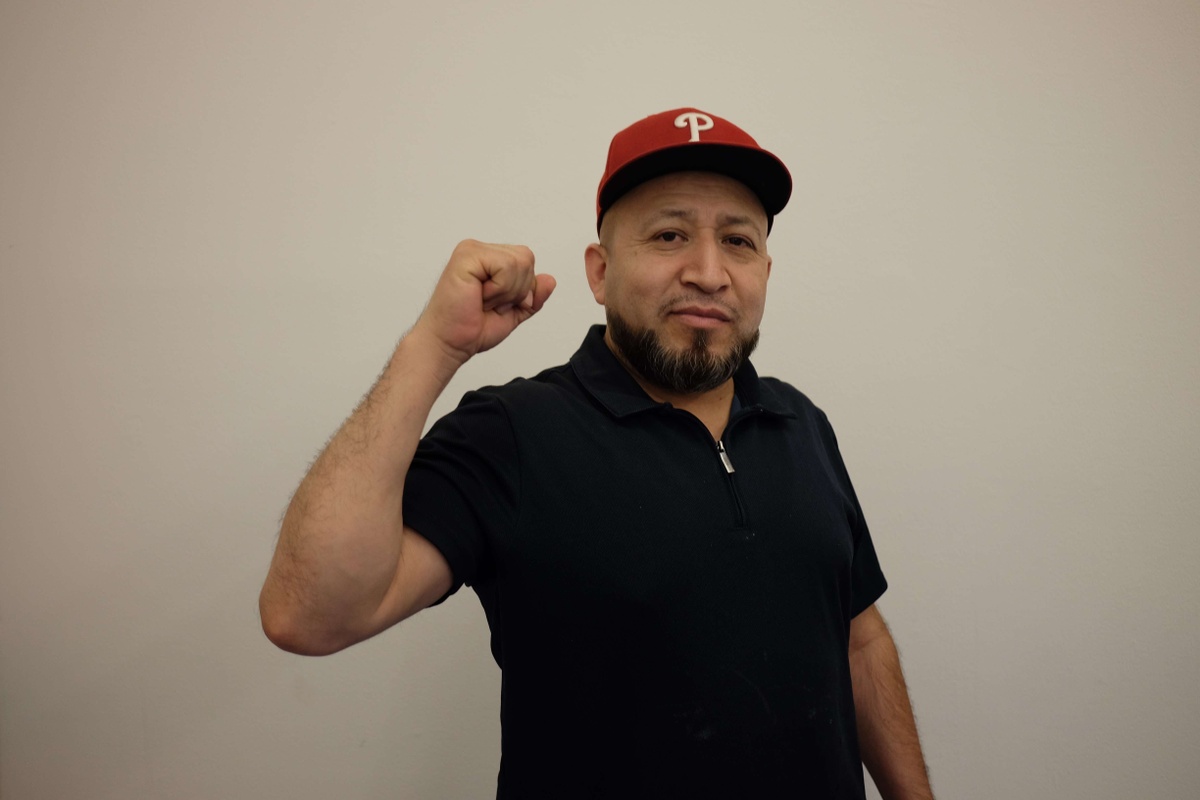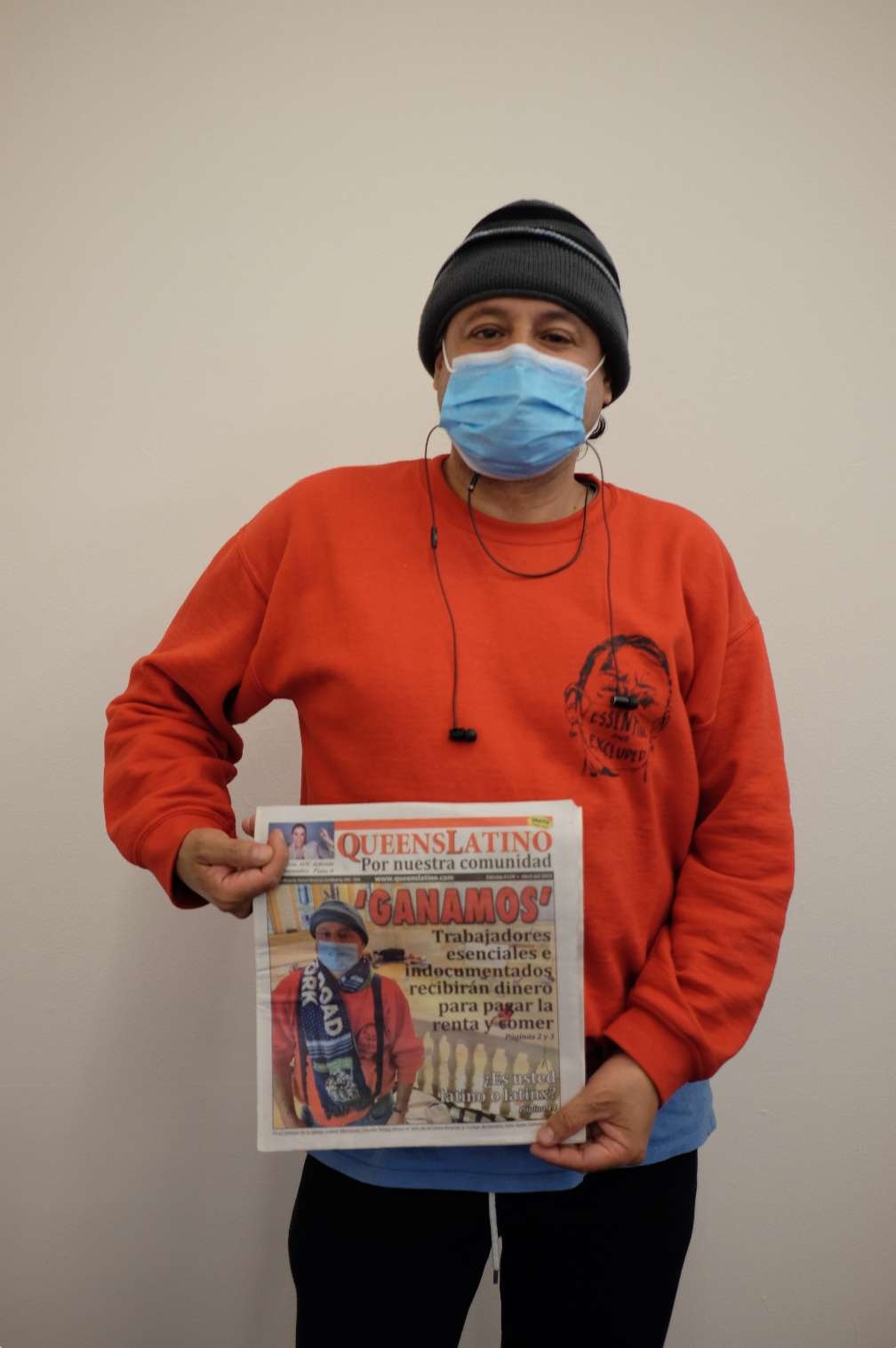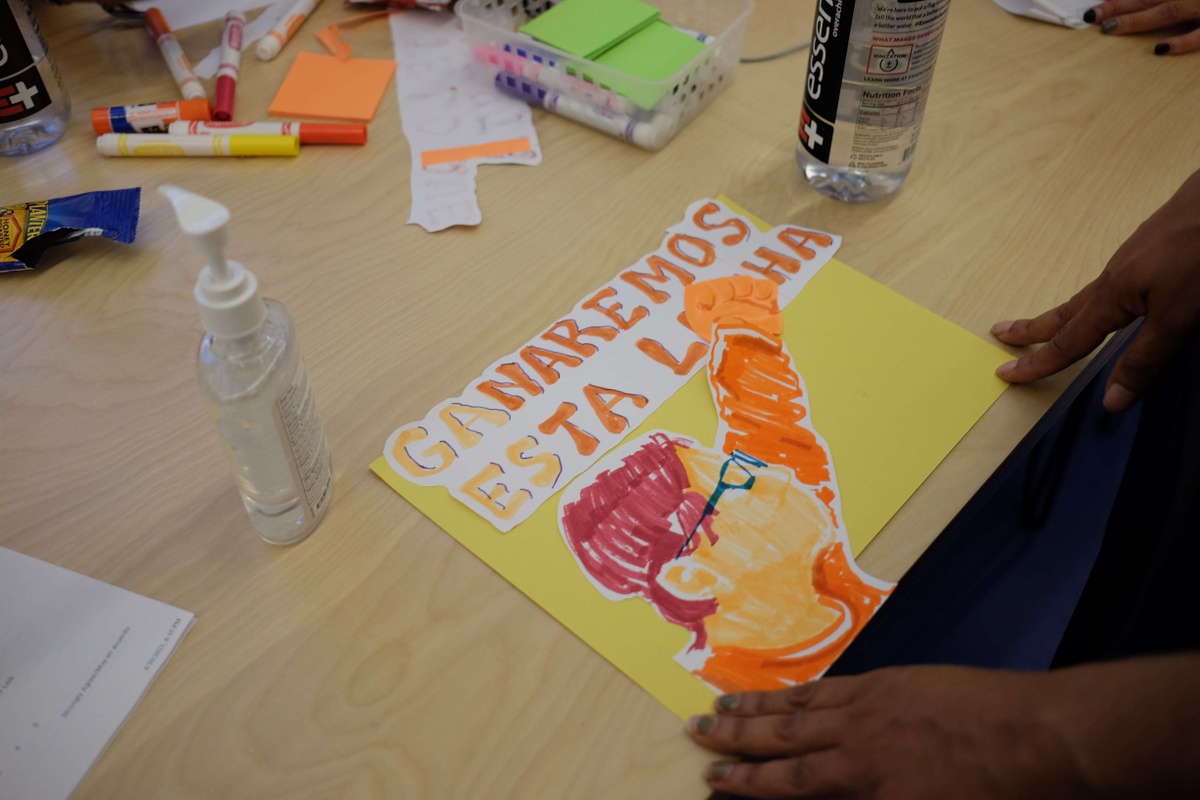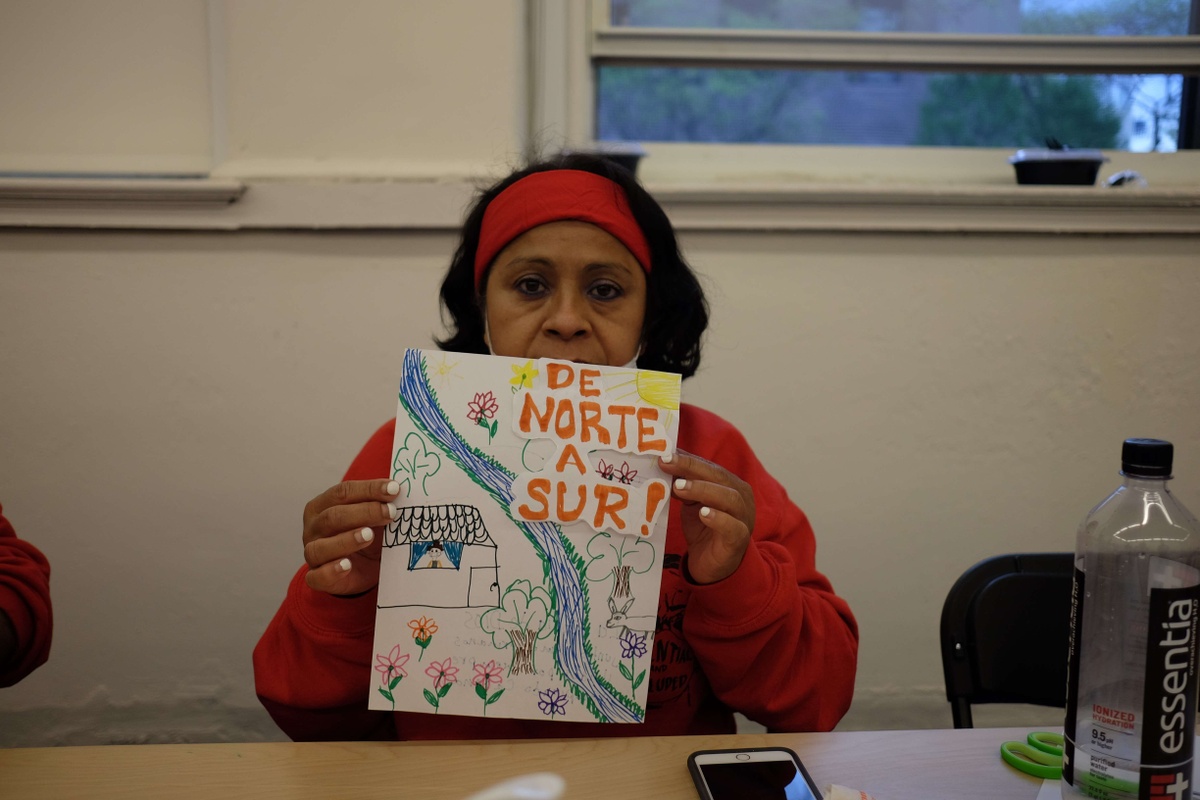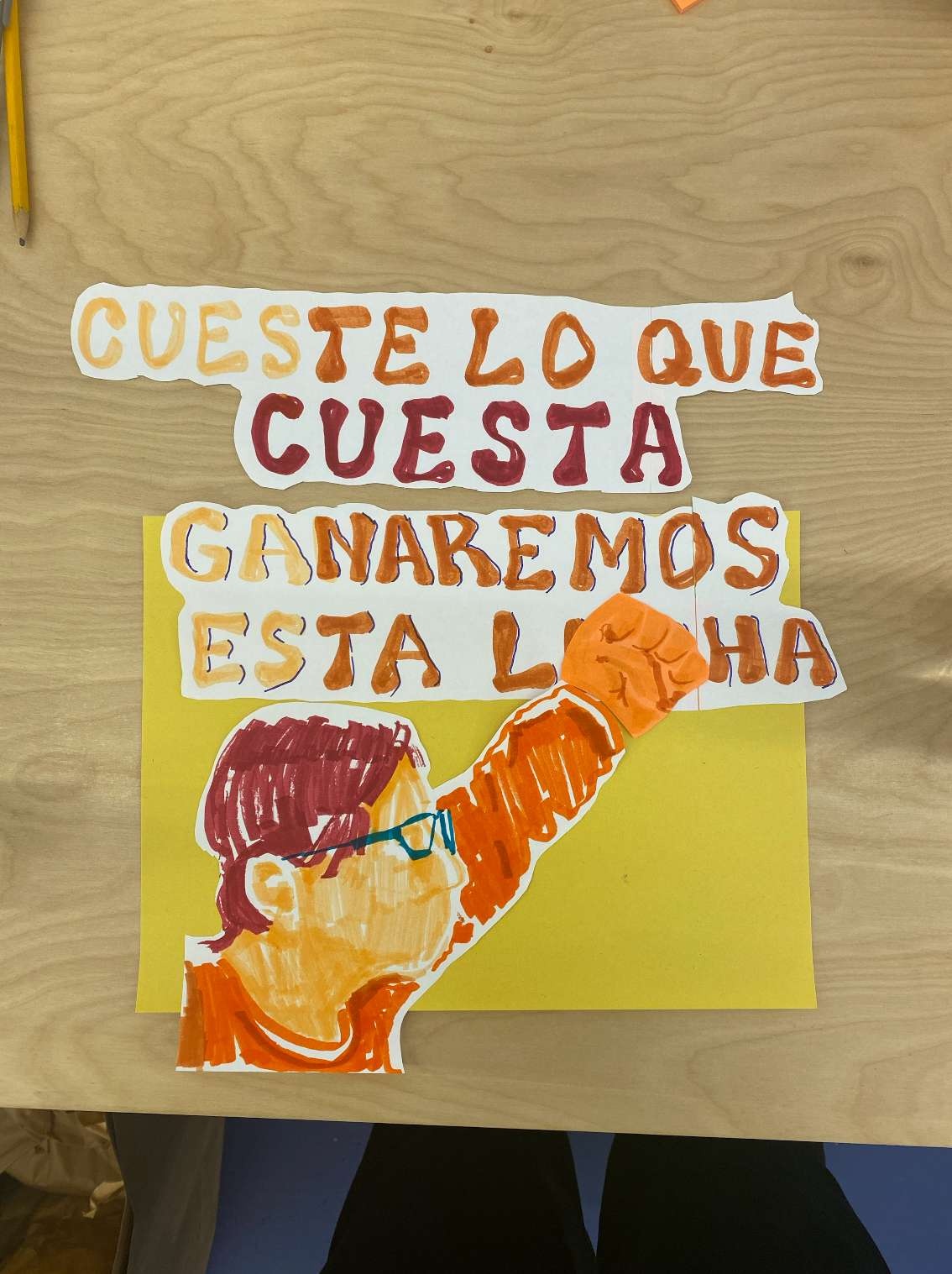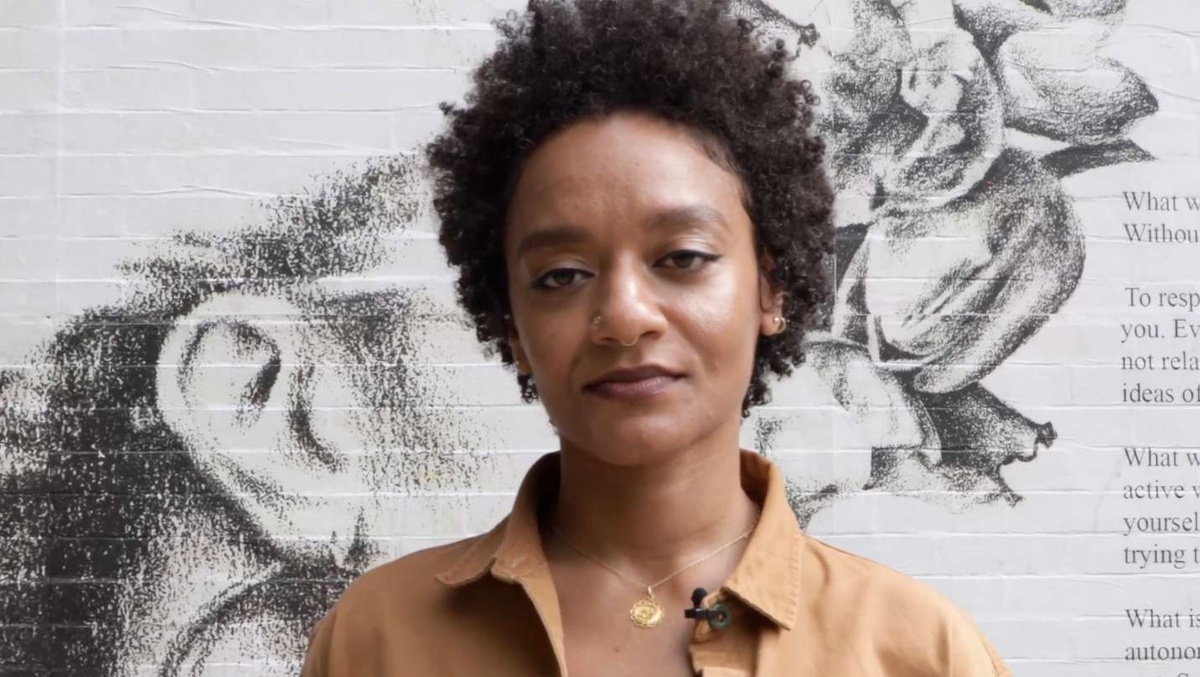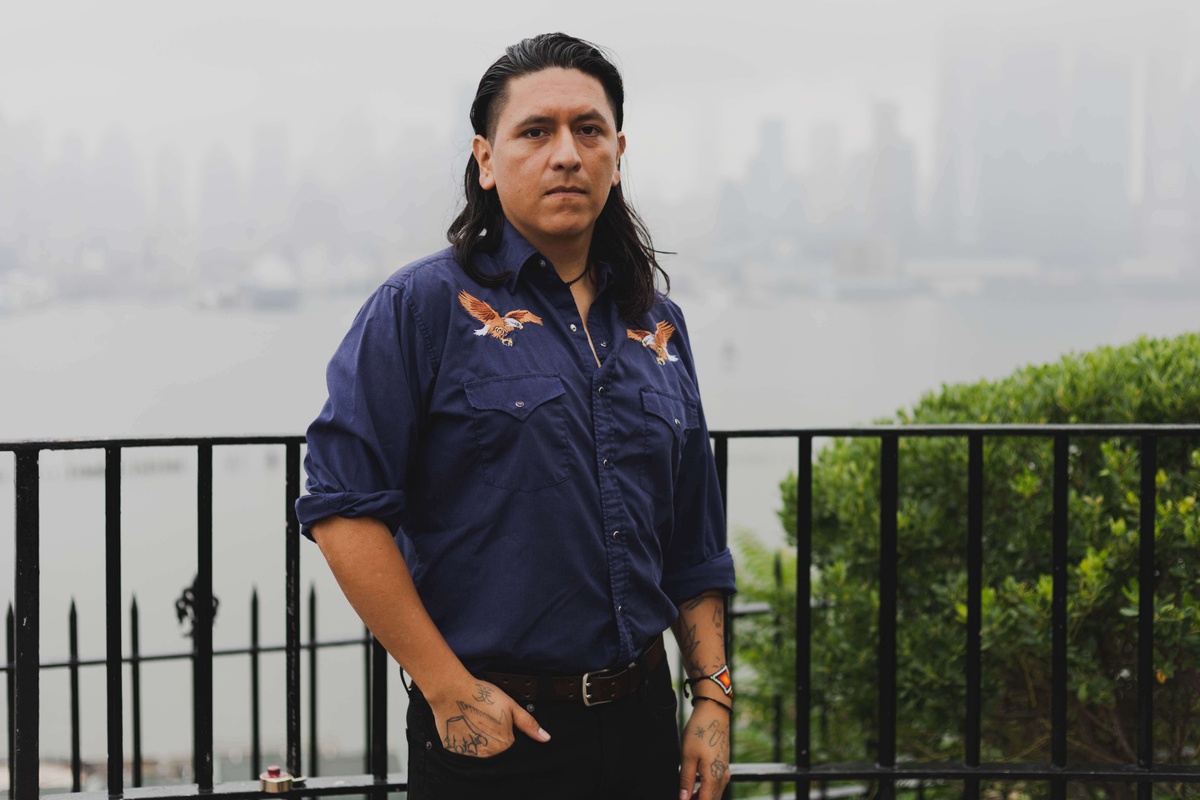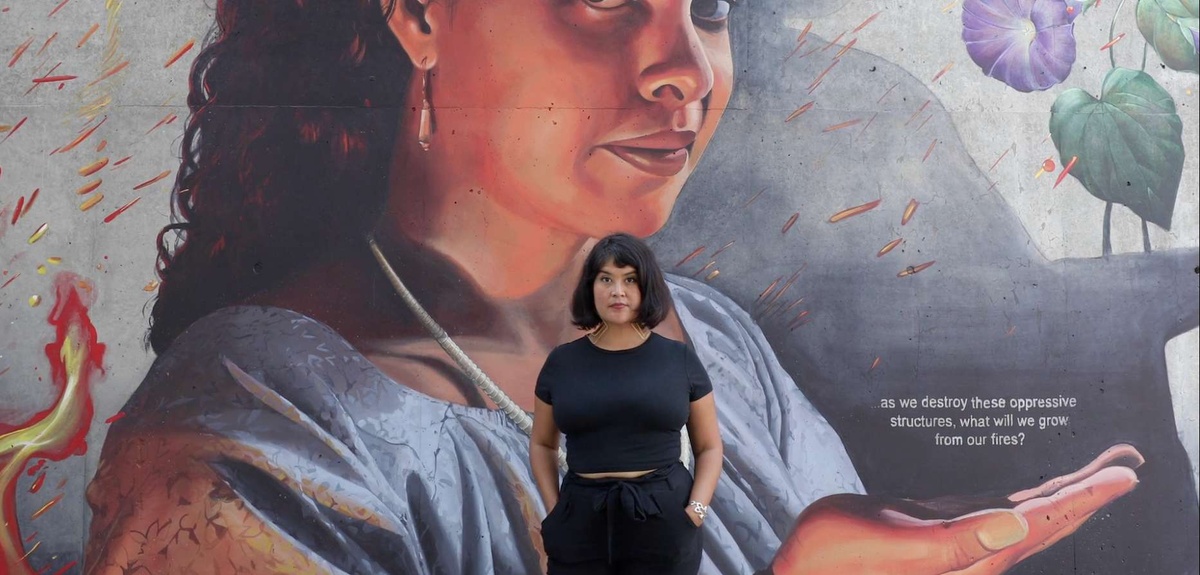After the Fire
Jul 23, 2022 – Jun 2, 2025
- Past
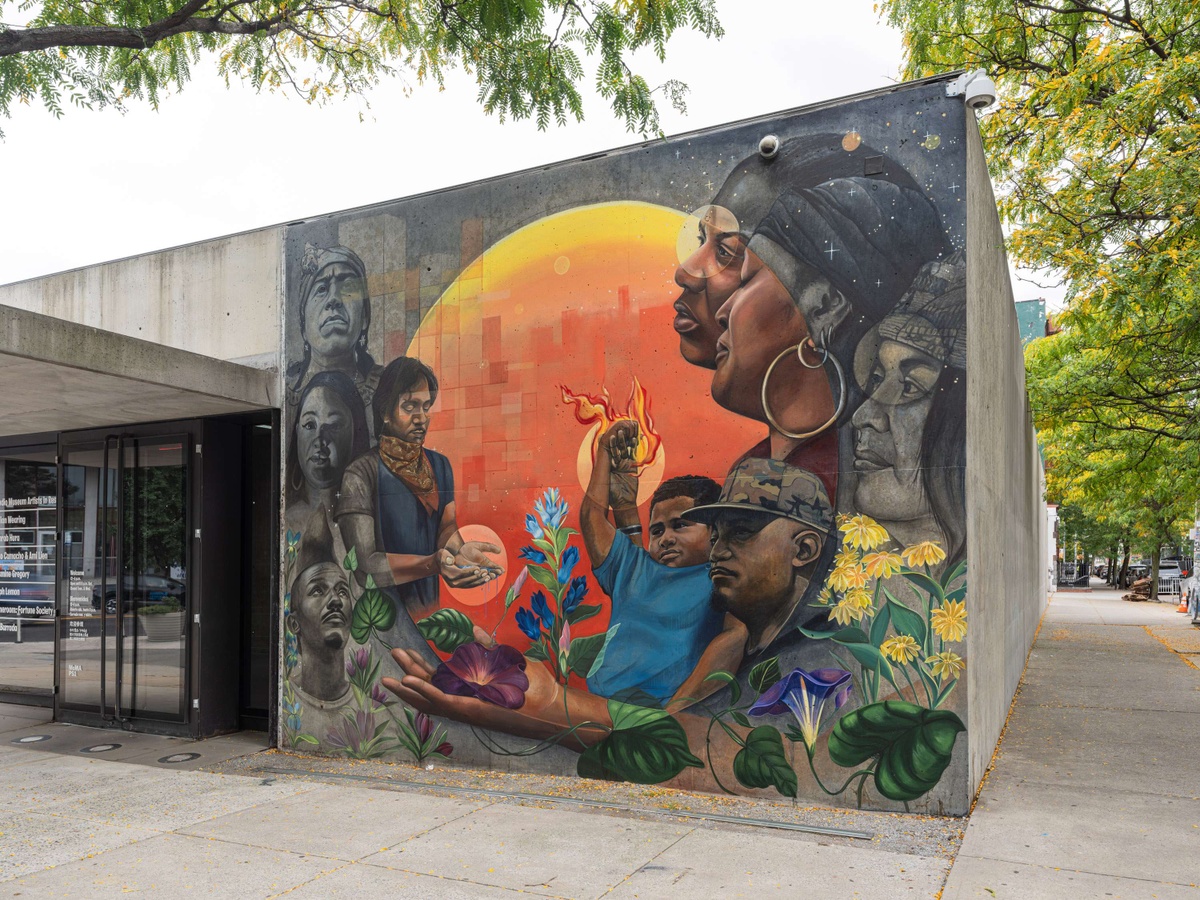
After the Fire is a participatory mural project by artists Nanibah Chacon, Tatyana Fazlalizadeh, and Layqa Nuna Yawar. Initiated in 2020, the collaborative, process-based approach to mural-making began in a series of workshops with local Queens community groups: Transform America, Make the Road, and members of the Shinnecock, Unkechaug, and Matinecock Nations. Participants discussed elements of society that they would leave behind in service of imagining a more just world. These conversations recognized the ways in which the pandemic laid bare existing racial, environmental, and economic disparities.
What Grows? (2022–24), the first part of the project, depicts a Shinnecock Nation woman emerging from flames, ushering in rebirth after rupture.
The second part of the project, which debuted in September 2024, portrays community members who were directly involved with the mural.
Nani Chacon (Diné and Chicana, b. 1980) is an artist most recognized as a painter and muralist. Chacon grew up on both the Navajo reservation and in New Mexico. She began a prolific career as a graffiti writer, and continued this practice for the next ten years. Community-based arts and educational integration are also a key component of the work Chacon creates. Her work has been recognized for its style and site-specificity, as well as its integration of sociopolitical issues that affect women and Indigenous peoples.
Tatyana Fazlalizadeh (Persian and Black American, b. 1985) is a Black/Iranian visual artist born in Oklahoma City and based in Brooklyn. In 2019, she was the inaugural Public Artist in Residence for the New York City Commission on Human Rights. Fazlalizadeh has been profiled by The New York Times, NPR, MSNBC, The New Yorker, and TIME Magazine. She has lectured at the Smithsonian National Museum of African American History and Culture, the Brooklyn Museum, New Orleans Contemporary Arts Center, and several universities including Stanford, Brown, University of Southern California, and Pratt Institute. Fazlalizadeh’s work can be seen on Spike Lee’s Netflix series She’s Gotta Have It, for which she also served as the show’s art consultant. She is the author of Stop Telling Women to Smile: Stories of Street Harassment and How We’re Taking Back Our Power (Seal Press, 2020).
Layqa Nuna Yawar (b. 1984, Cuenca, Ecuador) is a public artist and multidisciplinary storyteller based in the unceded lands of the Lenni-Lenape (present-day Newark, NJ). His work is best known for large-scale community-based murals, portraits, and multimedia projects that center the complex narratives of immigrant, Black, Indigenous, and subaltern populations. Yawar’s name is an invention that honors and reclaims the Kichwa-Kañari side of his mixed descent. His work has been awarded a Monument Lab Research Residency, a Creative Catalyst Fund Fellowship by the City of Newark, and a Moving Walls Fellowship by Open Society Foundations, among others. Yawar has held multiple teaching residencies, including projects with the United Nations World Food Programme, Casita Maria, and Rutgers University. His work has been exhibited at El Museo del Barrio, New York; the Newark Museum; and The Zimmerli Art Museum, New Brunswick, among others.
Transform America
The artists met with eight participants from Transform America, a community-based organization operating predominantly in Queensbridge Houses, a public housing development in Long Island City. Participants included Raymond Kelsey, Irene Denise Mcallister, Zekquana Roseboro, Dannelly Rodriguez, Tylisa Gaffney, Shatia Burks, Shantell Fuller, and Kenny Carter. The group was joined by Transform America founder Suga Ray, a former artist in residence at MoMA PS1. Shared meals were provided by Chef Blu Cheez and Ediciones Project.
Shinnecock, Ukehaug, and Matinecock Nations
The artists met with members of the Shinnecock, Unkehaug, and Matinecock Nations communities at the eastern end of Long Island, New York. The workshops were facilitated by the artists and Tecumseh Ceaser, an artist, cultural consultant, and Wampum carver of Matinecock Turkey clan, Montaukett, and Unkechaug descent. Participants included Danielle Hopson Begun, Denise Silva-Dennis, Harry B. Wallace, Jennifer E. Cuffee-Wilson, Reggie Cesar, and Jeremy Dennis.
Make the Road, New York Communities for Change, and the Fund Excluded Workers Coalition
The artists collaborated with members of Make the Road, New York Communities for Change, and the Fund Excluded Workers Coalition. The workshop was facilitated by the artists and community organizer Luba Cortés. Participants included Yimi Lopez, Alejandro Cortes, Clara Cortes, Alonso Castillo, Maria Sierra, Ana Ramírez, Claudio Felipe Idrovo, and Adán Palmero. Shared meals were provided by Chef Blu Cheez and Ediciones Project.
